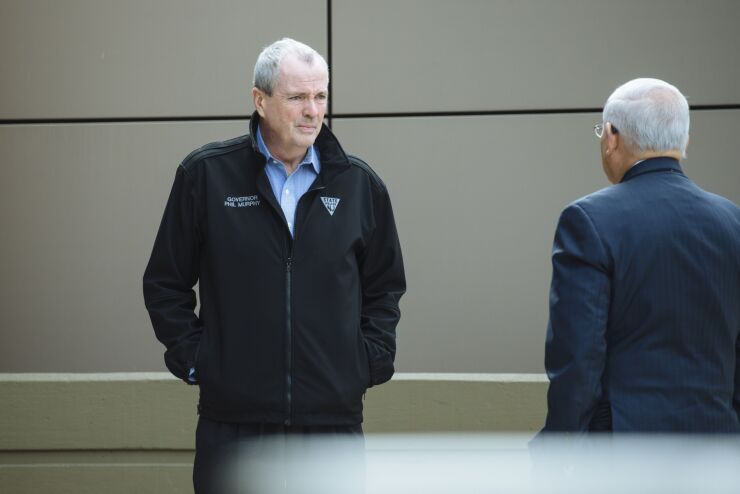More than a dozen private student loan servicers have reached an agreement with nine states to provide forbearance to borrowers who request it during the coronavirus crisis.
Participating servicers are promising at least 90 days of forbearance — among other consumer protections — to borrowers who seek it out. The goal is to extend relief to borrowers who were not covered by the Cornavirus Aid, Relief and Economic Security Act, which suspended all monthly payments on federal student loans until Sept. 30.
“I commend the private sector servicers that joined this initiative for easing some of the affordability concerns of our student loan borrowers who have been impacted by COVID-19,” New Jersey Gov. Phil Murphy, a Democrat, said Wednesday.

Other participating states are California, Colorado, Connecticut, Illinois, Massachusetts, New Jersey, Vermont, Virginia and Washington state. The agreement was modeled on a similar framework that New York state officials announced earlier this month.
The multi-state pact is
Still, the agreement announced this week offers less sweeping protections than the four-week-old CARES Act, which provided temporary relief for borrowers with federal student loans.
The Biden administration once again extended the pause on student loan payments enacted to help borrowers during the COVID-19 pandemic, this time through the end of August.
The two states' combined plans amount to over $1.5 billion of the Homeowner Assistance Fund included within the American Rescue Plan Act , which was passed a year ago.
An uptick in pandemic-related payment suspensions reflecting new or restarted plan activity previously occurred as the omicron variant spread, but activity has since subsided.
First, the new agreement applies only to borrowers who live in the nine states that signed on, though one state official who spoke on condition of anonymity expressed hope that participating servicers will extend the agreed-upon protections nationwide.
In addition, the agreement only covers a portion of the private student loan market. Banks that offer private loans — including Sallie Mae, Wells Fargo, Citizens Financial and Discover Financial Services — were not mentioned in press releases from the participating states.
Neither was the Pennsylvania Higher Education Assistance Agency, which has faced criticism over its handling of both private and federal loans.
Mike Pierce, policy director at the Student Borrower Protection Center, called the multi-state agreement an important step forward, but he implored the entire student loan industry to extend protections to all borrowers nationwide. “Companies must also be held to account if they cannot deliver on this promised relief,” Pierce said.
Spokespeople for banks that make private student loans said that they are already offering protections to borrowers affected by the virus that are similar to, or better than, those included in the multi-state agreement.
“In addition to payment relief, we have been communicating with our customers to explain the options available to them, and have them contact us to discuss their unique needs,” a Discover spokesman said in an email.
He added that Discover chose not to be included in the nine states’ announcement because the specified terms could limit the company’s ability to pivot and best serve its customers’ needs.
The nine states may not have felt they had much leverage over federally chartered banks, which are not required to hold state licenses in order to service student loans. The companies that have publicly committed to the states’ terms — including Navient, Nelnet, SoFi and College Ave Student Loans — are all nonbanks.
There is one more difference between the protections for federal student borrowers in the CARES Act and those announced this week for private borrowers: While the federal law suspends borrower payments automatically, the multi-state agreement does not require participating servicers to take any action unless a customer contacts them.
“So there’s still going to be some hoops that borrowers have to jump through to qualify,” said Kaitlyn Vitez, who works on student loan issues at the U.S. Public Interest Research Group.
Other consumer protection measures in the multi-state agreement will also be triggered by customer requests. Those steps include waiving late fees, preventing negative credit reporting, and ceasing debt collection lawsuits for 90 days.








